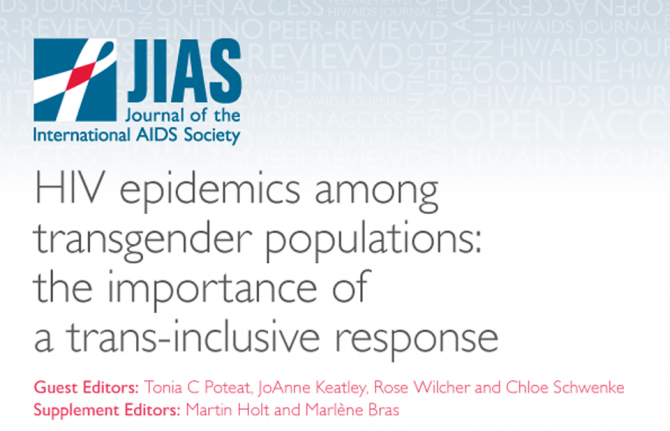

Update
HIV and transgender people
18 July 2016
18 July 2016 18 July 2016The Journal of the International AIDS Society has launched a special issue entitled HIV epidemics among transgender populations: the importance of a trans-inclusive response. The supplement comprises original research articles, case studies and calls to action, all of which highlight the urgent need for an effective, tailored HIV response for transgender communities.
Transgender women continue to be heavily affected by HIV, being 49 times more likely to be living with HIV than non-transgender adults. Many transgender people lack legal recognition of their affirmed gender and have no identity papers, resulting in their exclusion from education and employment. Transgender people face discrimination and violence, which further increases their vulnerability to HIV infection and hinders their access to care. The United Nations Political Declaration on Ending AIDS, adopted in New York, United States of America, in June, includes specific references to transgender people, but still only 40% of national HIV strategies include transgender people.
The supplement expands the evidence base on the HIV epidemic among transgender communities. It offers practical recommendations for reducing the burden of HIV among transgender people and promoting their broader health and human rights. Focus is also provided on specific subpopulations, such as transgender young people and transgender men who have sex with men.
The supplement was guest edited by researchers from the Johns Hopkins School of Public Health, the Center of Excellence for Transgender Health, Georgetown University and the FHI 360/LINKAGES Project, and was supported by UNAIDS, the World Health Organization, the United Nations Development Programme and the United Nations Population Fund.
The supplement can be viewed at http://jiasociety.org/index.php/jias/issue/view/1480.
Quotes
“We, the transgender community, call for programming that is trans-specific, trans-competent and evidence-based. This is the only way we can reach the Fast-Track Targets.”
“New evidence provides us with new opportunities to improve policies and programming for transgender people. This must be done with the engagement of transgender activists locally and globally.”



